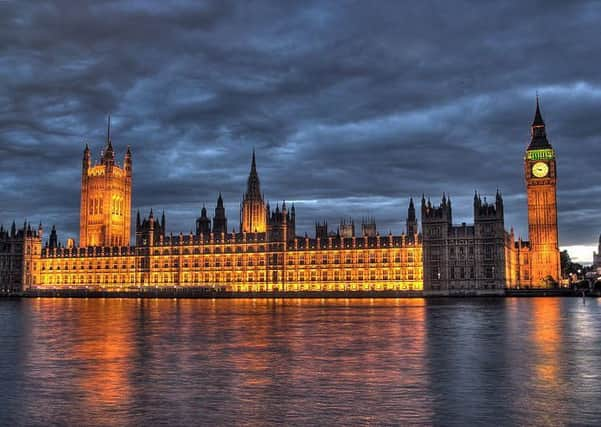Sam McBride: Abortion debate hints at a wider constitutional quandary


At a glance, it is difficult to explain that most abortions are a fairly standard medical procedure in most parts of the UK and a serious criminal offence in other parts of the same country.
But while there is considerable logic behind that desire of pan-UK uniformity, it is in fact an argument against devolution - or at least against the maximalist form of devolution which has been localising increasing power from Westminster over the last two decades.
Advertisement
Hide AdAdvertisement
Hide AdMany of the arguments put forward by proponents of abortion reform relate to how far out of step with the rest of the UK Northern Ireland’s abortion laws have become.
On Tuesday, Labour MP Stella Creasy, the driving force behind the Westminster attempt to legislatively intervene, said: “In supporting this proposal, every member can send a message that, in 2018, all the women of the UK deserve to be treated as equal citizens.”
Last week Sarah Wollaston, the Conservative chair of the Commons’ health committee, told Channel 4 News that the current situation in Northern Ireland was “completely unacceptable” and there was a need for “something that makes sure that women in Northern Ireland have the same rights as women elsewhere in this United Kingdom” which could be achieved by Westminster intervening.
On Thursday, Labour MP Joan Ryan summed it up thus: It cannot be right to criminalise women in Northern Ireland for actions that would not be criminal anywhere else in the UK?”
Advertisement
Hide AdAdvertisement
Hide AdAnd yet, the logic of devolution is that there are inevitably going to be more areas – and some of them will, intentionally or otherwise, have profound implications for the rights of some citizens – where members of the public have differing rights and responsibilities.
It is true that the UK has always been a Union of nations, meaning that there have been quirks – such as the separate legal system in Scotland – which mitigate against rigid national legal conformity.
But the beating ideological heart of devolution is that local people should make local laws – not just regardless of whether that is out of step with Westminster, but actually precisely because it often will be – unless in those areas such as defence, taxation and international relations which have been retained to Parliament.
Yet even in those retained areas, the logic of devolution is towards greater and greater local autonomy – the Scottish Government now has its own specific tax while both Holyrood and Stormont, while nominally barred from getting involved in international relations, now operate foreign bureaux in North America, Europe and Asia which represent the views of the Scottish Government or the Northern Ireland Executive to foreign nations.
Advertisement
Hide AdAdvertisement
Hide AdThe constitutional significance of the Westminster abortion debate has not been lost on the SNP.
The party’s shadow Northern Ireland Secretary, Deidre Brock, made clear in Parliament this week that she is strongly pro-choice and wants to see abortion reformed in Northern Ireland.
But she added firmly: “It is a matter devolved and, frankly, it matters not a jot whether the decisions made at Stormont, when it is sitting, are agreeable to members sitting here. That is the point of devolution, a point that some members of this place have been spectacularly slow to appreciate at times.”
Regardless of the outcome, this will not be the last such debate. The UK is legislatively fragmenting and that will present myriad challenges.